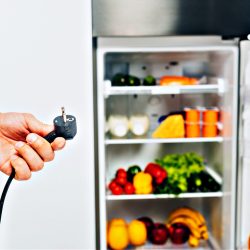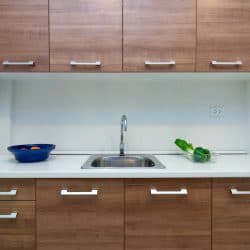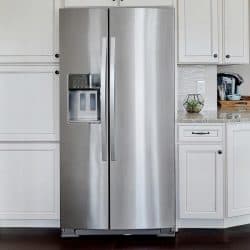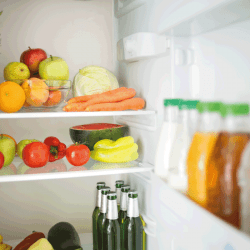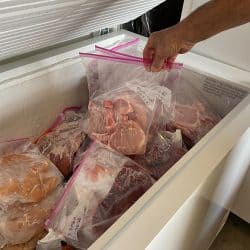Getting to know the bigger appliances throughout your kitchen can feel like a daunting task. Are you thinking of ways to keep your home cool during warmer weather and don't know if your fridge is the answer to your prayers? Well, we've done extensive research and have all of the answers here for you. Let's get right into it.
Unfortunately, a refrigerator isn't going to be able to cool a room. If anything, keeping the doors of your fridge open for too long can increase your appliance's exterior temperature. This is because your refrigerator will need to work harder to keep its internal climate, ultimately using more power and creating more heat.
As we begin, we will cover all things refrigerators and discuss whether you can use one to keep you cool. Whether you're somewhere with unbearable summers or want to cool down your entire kitchen, we're here to offer plenty of help. With that said, let's dive right into this topic!
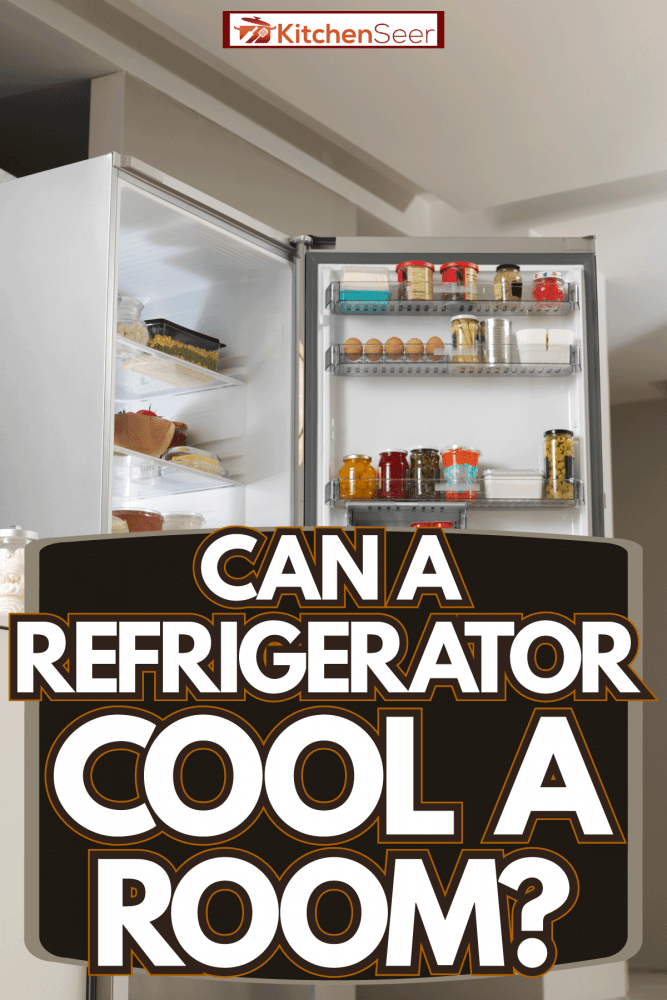
Can You Use The Fridge As An Air Conditioner?
Although this sounds like a great idea, you shouldn't use a refrigerator like an AC unit. Besides the fact a fridge doesn't generate cold air from its exterior, using one the wrong way can damage it.
As we covered, keeping the doors of a refrigerator open for too long isn't good for the food inside. Usually, your appliance will go into high power mode to lower its internal climate, producing even more heat through its exterior vent(s).
Furthermore, a fridge needs to release warm air as it is, so putting more pressure on your appliance can cause it to overheat.
How Is Refrigeration Different Than Cooling?
Considering the two seem to be mistaken often, refrigeration is the process of bringing down an item's temperature lower than the space around it. However, cooling will bring down everything around its temperature, which is not the same as refrigeration.
Think of this in terms of air conditioning. When you turn the AC on, everything in the space will become colder, but at the same temperature.
Refrigerators cool items according to where they are inside, often being coldest in the freezer or lower/back shelving. This is what makes them so different.
What Happens To The Temperature Of A Room When A Refrigerator Is Left Open?
If you leave the refrigerator doors open, your room will begin to get warmer. As we mentioned earlier, this creates a problem for the interior climate of your appliance.
Furthermore, having the doors of your fridge open for more than a few minutes at a time can lead to your food spoiling, so this isn't only bad for a refrigerator's mechanics.
That said, the harder a fridge needs to work to stay cold, the higher chances of something going wrong with its motor, compressor, or evaporator fan. These can be difficult and expensive to repair, so when in doubt, close your refrigerator.
How Long Can A Fridge Be Open?
Depending on what you have inside your fridge, this can vary. Typically, you don't want to leave a refrigerator open for more than a few minutes at a time.
Keeping your fridge's doors closed whenever you aren't actively getting food or putting it away is essential for food safety. According to Hiro Asian Kitchen, the average time a refrigerator can be open before food spoils is between 60 and 240 minutes, although we don't recommend pushing the limit.
Again, this won't be the same for all foods, so if your fridge is full of dairy, you could see things start to sour in less than an hour.
Do Refrigerators Heat The Room?
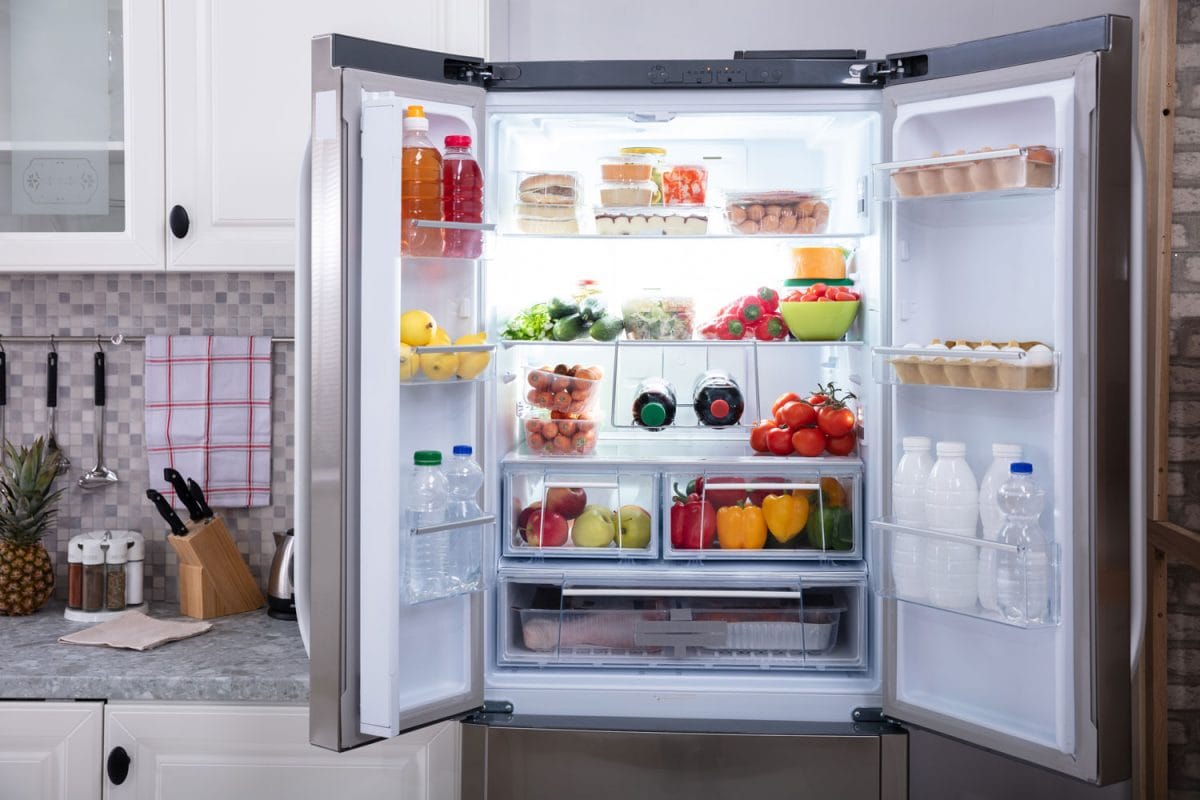
Yes, the more a refrigerator cycles to cool down the food inside, the warmer it becomes outside. As we mentioned, this is due to the exhaust of your appliance.
When your fridge needs to work double-time to remain 35-40 degrees inside, this can put extra pressure on its mechanics: specifically, your fridge's compressor.
Although the initial rush of cool air that comes out of your fridge can be refreshing, you will notice this quickly becomes little to none.
The purpose of a fridge is to cool individual items rather than entire spaces, so your appliance won't have that capability.
How Much Heat Does A Fridge Give Off?
Considering that the average refrigerator draws about 600 watts of power per second, it quickly gets hot. That said, Stack Exchange explains that this essentially comes out to 600 joules of heat being produced every second your fridge cycles on, which is considerable.
Furthermore, all of this created heat will add up in your kitchen. Although it may not become unbearably warm within seconds or even minutes, you will notice a hotter climate within the hour.
To avoid this, we recommend keeping the doors of your refrigerator closed whenever you aren't directly using it. This means that unless you need to grab a snack or put the groceries away, your fridge should remain closed.
Do Refrigerators Release Carbon Monoxide?
Unless your refrigerator isn't venting properly, it won't produce carbon monoxide. Generally, carbon monoxide won't become a problem if you keep your fridge somewhere with good ventilation.
However, CO emissions can become a significant health concern if there's a gas leak or issue with your refrigerator's mechanics, so this isn't impossible.
How Cold Should The Inside Of A Refrigerator Be?
In general, it's best to keep a fridge around 40 degrees Fahrenheit. According to the FDA, having a refrigerator be at or below 40 degrees prevents the growth of microorganisms like salmonella, E. coli, and listeria.
Considering these all cause foodborne illness, this is very important. Additionally, you want your fridge to be cool enough to store food, like dairy, properly, so the colder, the better.
On top of that, the optimal temperature for storing most food groups is around 37 degrees, so that's a good number to shoot for.
Is A Fridge OK At 50 Degrees?
If the inside of your fridge is at 50 degrees, this isn't good. As we said, your food needs to be kept at 40 degrees Fahrenheit or less to prevent harmful bacteria from forming.
Additionally, 50 degrees for the interior of a fridge won't get your items down to their optimal 37-degree mark, which can lead to spoiling.
This is especially true for meat, fish, and dairy. The warmer your refrigerator setting, the more likely the food inside will go bad, so keep this in mind when setting the temperature.
Why Does My Fridge Feel Warm To The Touch?
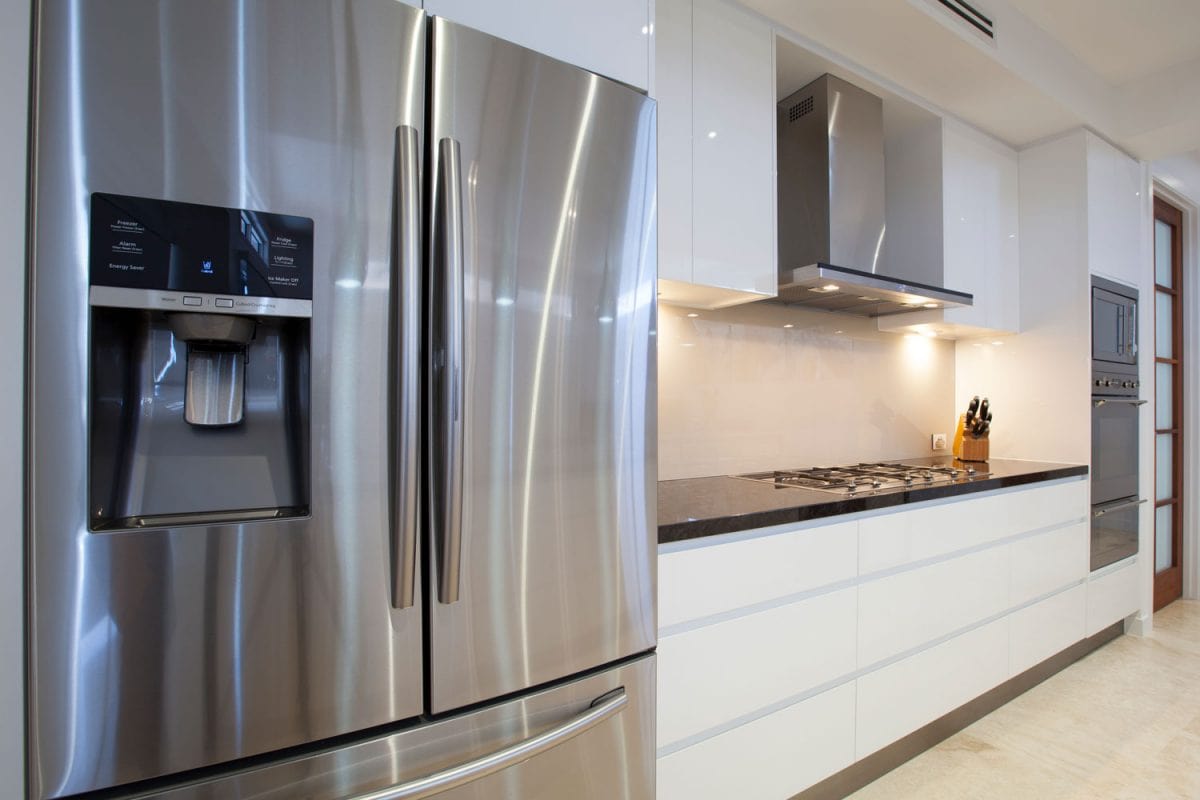
If your refrigerator feels warm to the touch, this could mean a few things. Most commonly, a warm fridge is expected if the weather outside is very hot, as your appliance needs to work harder to stay cold inside.
Your refrigerator could also become warm if it uses more energy to cycle on and off. As we mentioned, this happens when you leave it open for extended periods.
Furthermore, a refrigerator with dirty condenser coils could also get hot, eventually overheating. Again, there are many reasons a fridge will feel warm when you touch it, so this won't be the same for everyone.
According to Samsung, insufficient spacing between your fridge and other heat-producing appliances/its surroundings will also cause overheating, so again, the list is endless.
What Happens If A Refrigerator Overheats?
When a refrigerator overheats, this can cause many problems. Most seriously, your appliance could catch on fire. Again, this isn't the first thing to usually happen, but it's not impossible either.
In addition, a fridge that overheats often could mean something is wrong with its mechanics, specifically, the compressor, which might need to be replaced.
Luckily, most refrigerators will give you a warning before they get too warm. Usually, this comes in the form of a buzzing compressor, so keep an ear out.
With that said, if your fridge needs a new compressor, expect it to cost between $100 to $500.
Can You Use A Freezer To Cool A Room?
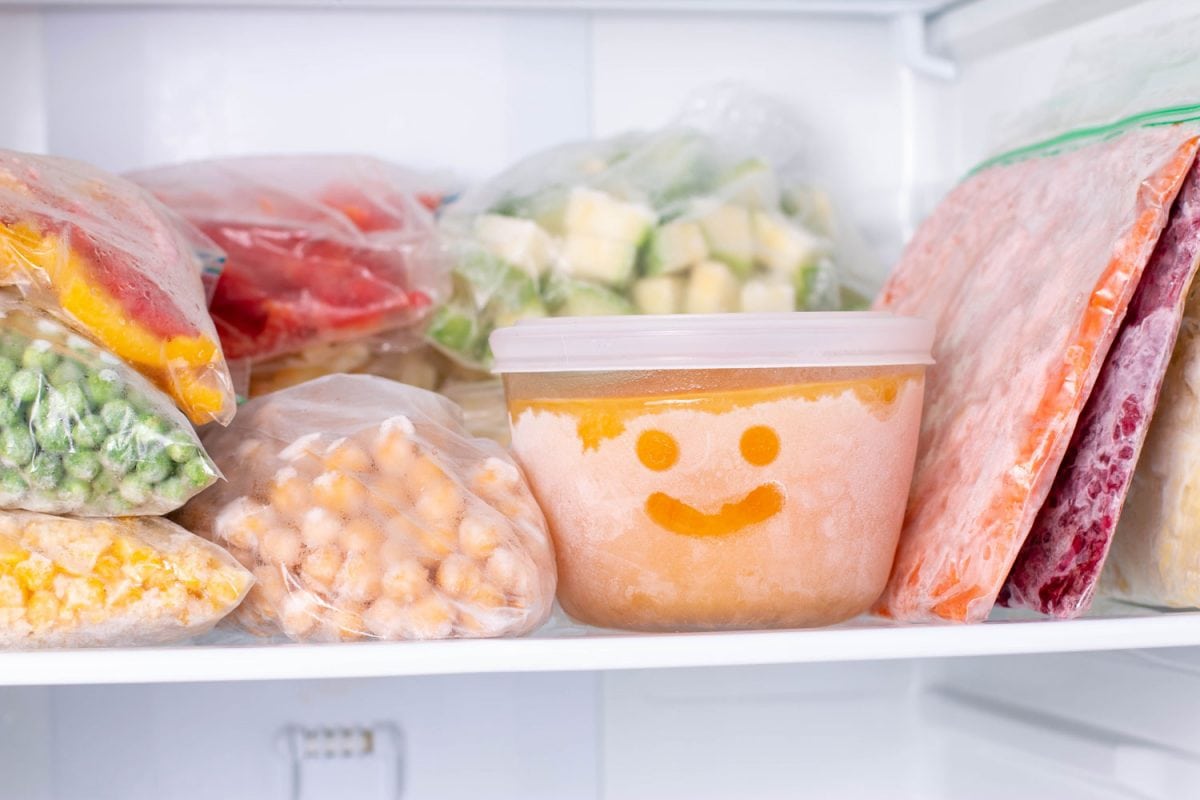
Like the fridge, you also want to avoid using your freezer as an AC unit. Considering that the freezer and fridge are connected most times, this can also lead to overheating.
Furthermore, keeping a freezer door open will result in melted/spoiled food. This can be problematic for frozen meat and fish, so we don't recommend it.
Again, it might feel good for the first few minutes, but after a while, your appliance will become very hot.
To Wrap Up
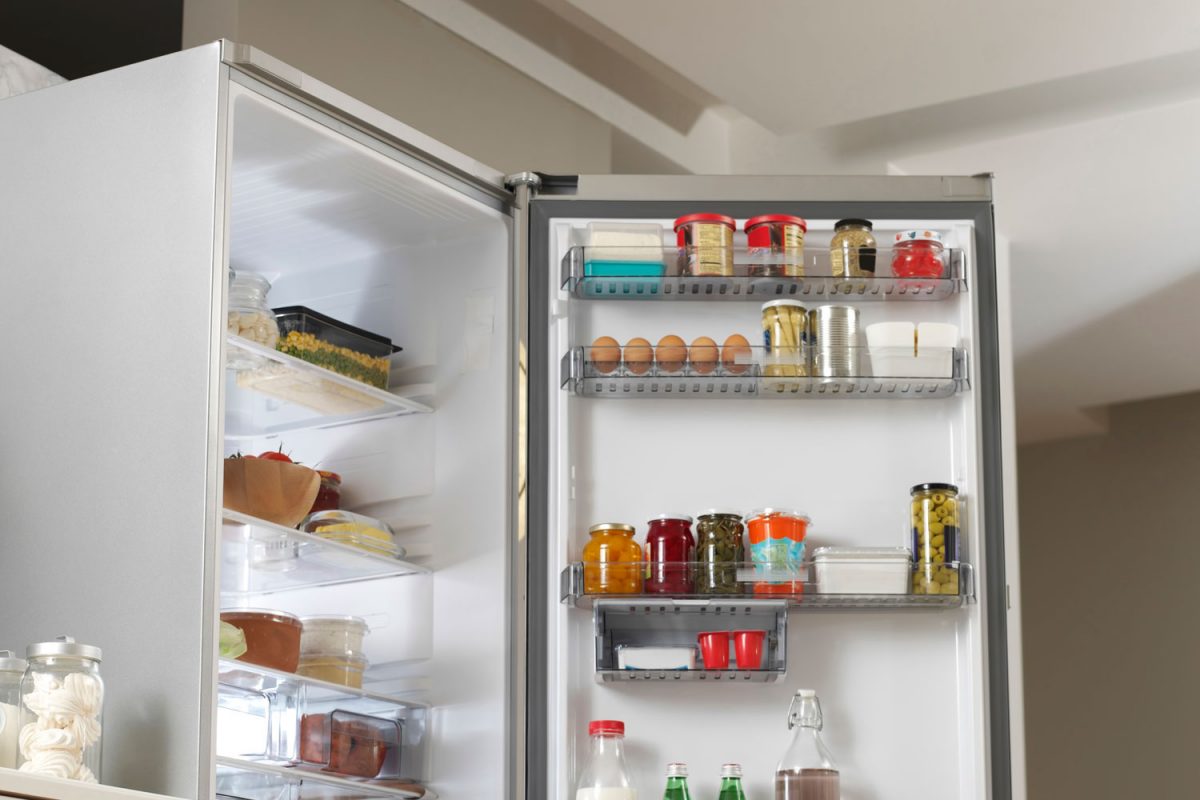
Whether you need new ideas for cooling down in the summer or open your fridge regularly, this isn't always a good idea. From what we found, a refrigerator won't cool down a room. Although it may feel like it, your refrigerator cannot work as an air conditioner.
Instead, a fridge works to cool individual items down lower than the temperature nearby. This also applies to the freezer, so make sure to keep the doors of both closed as much as possible.
Regardless, make sure to inspect your refrigerator if it feels warm, and don't be afraid to invest in a cooling fan instead of opening the doors of your appliances!
Made it to the end? Check out these super helpful related kitchen posts below!
Can You Consume Ice From A New Refrigerator?
Can Refrigerator Doors Be Removed For Delivery?
Does Refrigerator Depth Include Doors And Handles?

